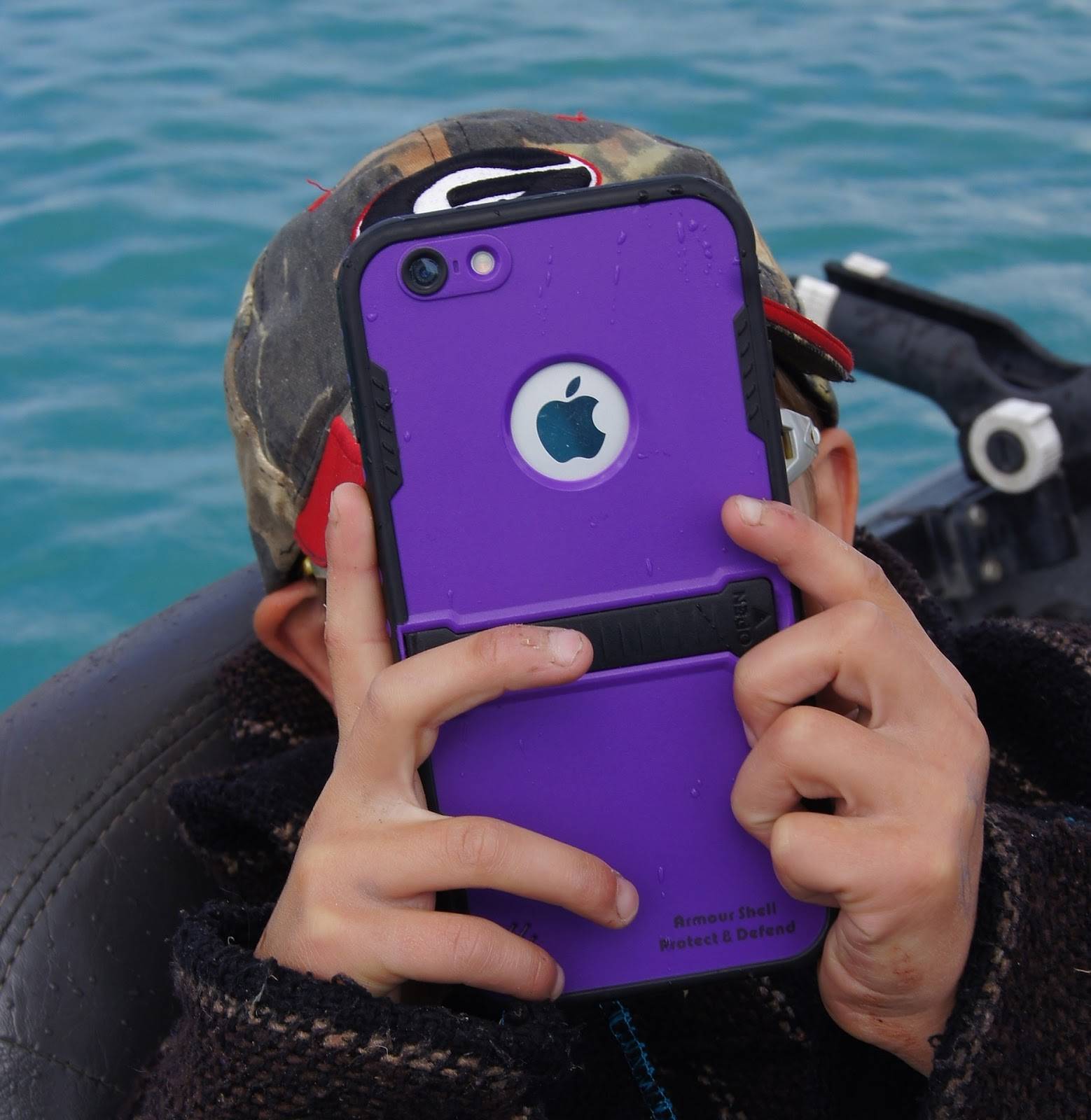This content has been archived. It may no longer be relevant
Anonymous Apps: Why You Should Be Careful
Video Transcript
Courtney: Welcome back to “Good Day”. Okay, I’m a little stressed out right now because my daughter has had her cell phone for three months, Ryan. I know, she just started middle school and so I’m freaking out.
Ryan: She’s a teenager, too.
Courtney: Well, she’s a tween. She’s 11. She reminds me all the time.
Ryan: All right. Well, she’s close.
Courtney: She’s very close. And so you say that there are apps that I should have that she definitely shouldn’t have.
Ryan: Yes, we’re gonna get into why parents should have them in a few seconds. But first, we’re gonna talk about why teens should not have them. These are bad apps. First of all, let’s talk about them. There’s two different kinds. One’s a temporary app, it’ll self-destruct the messages and the pictures. And the other one’s an anonymous chatting type app where you can chat anonymously with other people online. And here’s why they’re bad…actually, we’ll get into why they’re bad in a second. I’m gonna first identify all of them. These are the top nine that are being used.
One is Snapchat that, no kid uses Facebook anymore. They just don’t do it. It’s Snapchat’s where everybody’s at. Kik, which is anonymous messaging app. Whisper, where they can write secrets online and everybody can reveal things that they’re secretly thinking. Yik Yak is another one, but this one’s a location-based chat one. WhatsApp, everybody’s using WhatsApp for chatting amongst themselves and all kinds of crazy, nefarious things.
Anyway, go down to why this is bad. Seventy-two percent of parents say that they want to know what the kids are doing, and 25% of teens…I’m sorry, 72% of teens are saying that they hide what they do online from their parents. And the kids don’t…it’s all secret. It’s secret stuff. Here’s the hidden dangers. When you’re doing these anonymous apps, they don’t know who they’re talking to. And some of them are location based. The Kik app, for example, pedophiles use this…this is terrible, pedophiles use it because there’s a location system in it where it’ll tell you where the person is that’s chatting with you, and so they lure them with little different things…just terrible stuff.
So anyway, when you’re using these kinds of things, it’s used for sexting, it’s used for cyberbullying, it’s used for all kinds of terrible stuff. Let’s talk about why parents need to start using them. One, you need to be familiar with them because you want to know what they’re doing so when you look on their phone you can go “Oh I know what that app is” and see what it is and you’ll know what’s going on. But the Drexel University, and here’s the fun part, the Drexel University did a study last year of 870 adults from 18 to 82 and found that 80% of them are sexting. Old people, they don’t need to be sexting, right? But here’s the thing, it turns out that in committed relationships, they have an increased intimacy and it actually creates a better relationship.
Courtney: You said committed relationships.
Ryan: Yes, committed. Not just like for a hookup or anything like that, committed relationships. They reported happier relationships if they’re sexting. And here’s the other thing, when you’re using your phone and taking naughty pictures, that can get uploaded to your cloud account, get on all your devices.
Courtney: Oh no! Abort! Abort!
Ryan: You could use an anonymous app. Or let’s say you’re gonna have a conversation with somebody that’s a little sensitive. You don’t want to have that on archive. If you’re angry with your husband and you’re like “ugh”, get on one of these anonymous ones where you guys can yell at each other and then it goes away, so you can’t use it and go, “Look what you said to me. Look what you said to me a year ago, that’s so terrible!”
Courtney: Because you know we’re good for bringing up old stuff. Ryan, you are awesome. A wealth of knowledge.
Ryan: Thanks.
Courtney: Things I need to remind myself. Hubby? Hubby.
Bethany: Genius.
Ryan: Keep in mind that in the next hour, we’re gonna be doing how to protect your kids online. Different devices and stuff to monitor what they’re doing online.
Courtney: Excellent.
Ryan: Good stuff.
Courtney: All right, stick around for the next hour. Ryan, thank you.
Ryan: You’re welcome.
Woman: All right ladies, back to you.
Bethany: Some unexpected turns that conversation took.
Apps that allow you to send self-destructing texts or photos are a great tool for adults that want to ensure that questionable online behaviors don’t follow you forever. But recent studies indicate that teens are more likely to engage in risky behaviors when using apps like Snapchat and Kik. So what are these “anonymous apps” exactly? Well, there are actually 2 types to be aware of:
Temporary apps let users send messages, photos and videos that self-destruct after a set period of time. This includes apps like Snapchat. 41% of US teens use Snapchat! Burn Note and Line are other apps that erase messages after a set time. Line has 218 million active monthly users!
Anonymous apps allow users to post thoughts, images and messages without revealing their identity or location. Kik is one of the most popular apps in this category, 64.8 million teens aged between 13-18 are frequent users of Kik. 28 million teens use Ask FM to ask questions anonymously and Omegle is an anonymous chat service filled with sexual content, drug references and violence, where 40% of users are under 18.
So what are the dangers? This anonymity makes it much easier to cyber-stalk, cyber-bully or be victims of these terrible activities. Being anonymous encourages riskier behavior, so it is much more likely your teen will get into trouble! Exposure to adult content from other users is likely as the anonymity protects the sender, however it should be noted that anonymity is not guaranteed!
Kik Messenger has been reported to be used by pedophiles, using the location tracking software in phones to help them track down and lure potential victims. They can create multiple accounts to prevent being tracked down and use automated bots to send explicit material to users.
Adults can make use of these apps for good reasons. Researchers at Drexel University surveyed 870 U.S adults (age 18-82). 88% of participants reported having sexted and nearly 75% said they sexted in the context of a committed relationship. The study found that greater levels of sexting was associated with greater sexual satisfaction, especially for those in a relationship.
BUT, take precautions, don’t store compromising images on your phone! They’ll end up in your iCloud or auto-backup and before you know it, they’ll show up on your monitor’s photo montage screen.
Temporary apps are great for sending anything emotionally hot or cold, for example:
- Sexually explicit content
- Arguments aren’t something you want stored in your loved-ones text feed
- Political reactions that you may not want someone to remember!
Anonymous Apps let you vent without having that temporary emotional flare follow you on Facebook. You don’t want this stuff coming back to haunt you later.
In Summary:
Get familiar so that you can recognize them on your child’s device
Block these apps from your young teen’s device
Set up restrictions
Talk to your child about the dangers
Engage with your older kids on the forums they’re using.
69% of young adults (18-24) use Snapchat
They’ll roll their eyes at you when you join, but if done right, you can engage on the forum they’re using – and it’s not Facebook!
Oh, and a quick heads up: users are notified when you screenshot a Snapchat!

About The Author: Andrea Eldridge is CEO and co-founder of Nerds On Call, a computer repair company that specializes in on-site and online service for homes and businesses. Andrea is the writer of a weekly column, Nerd Chick Adventures in The Record Searchlight. She prepares TV segments for and appears regularly on CBS, CW and FOX on shows such as Good Day Sacramento, More Good Day Portland, and CBS 13 News, offering viewers technology and lifestyle tips. See Andrea in action at callnerds.com/andrea/.





